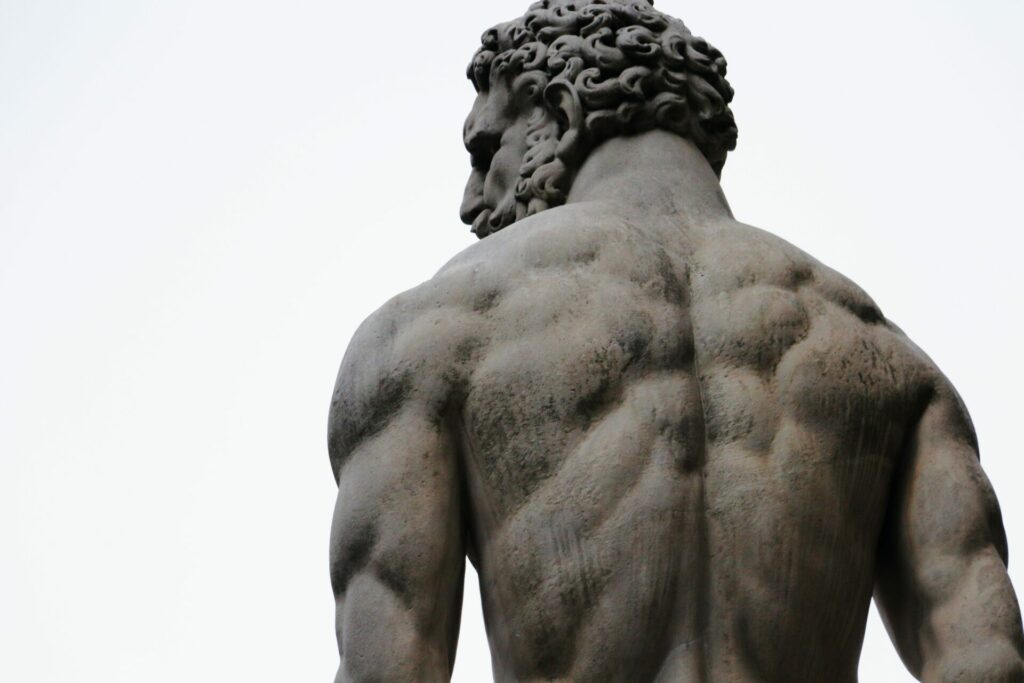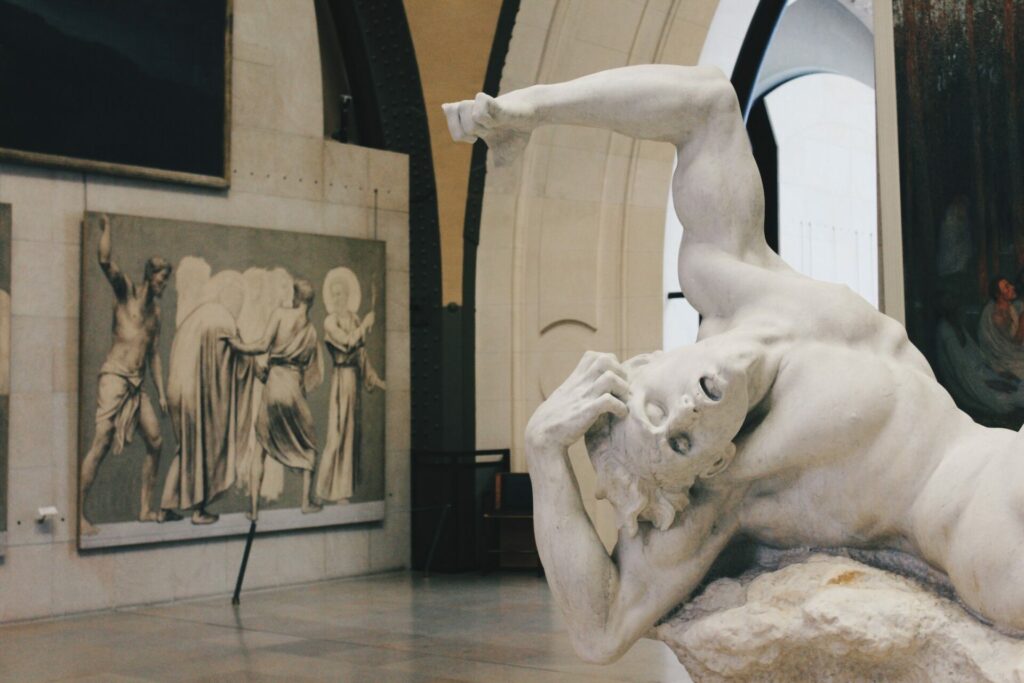Askēsis: Stoic Ethics For Reaching Your Highest Potential
posted on: October 31, 2019
author: Anthony Pellegrino

Photo by Simone Pellegrini on Unsplash
Every competitor is familiar with the necessity of training.
This is nothing new.
Everyone knows they need self-discipline to achieve success in any endeavor, whether that be in sports or otherwise.
But many of us have difficulty in acting as disciplined as we could be.
Some days we’re not feeling it. Some days we’re feeling tired, or cranky, or lazy.
In a moment of weakness, we’ll skip the gym or cheat on our diets, only to feel disappointed in ourselves afterward.
If we let this get out of hand, disappointment can turn into despair and only serve to inch us further away from realizing our potential.

Photo by Alina Grubnyak on Unsplash
So how can we overcome these obstacles within ourselves?
We’ve been working on an on-going series of posts about Stoicism in sport. Once again these ancient wise men can come to our rescue.
You see, in the end, our problems with self-discipline are the result of our mindsets. We are our own worst enemy when it comes to realizing our potential.
Check out our online course, The Great Competitor Formula, to strengthen your entire mental game and supercharge your self-discipline.
We need to reframe the way we perceive training, adversity, and discipline, or what the Stoics call “Askēsis.”
The word ‘Askēsis’ is the Greek root of the word asceticism or severe self-discipline for religious or meditative purposes.
That’s not to say you need to act like ascetic monks to achieve success, but it does allude to how much willpower the universe demands to achieve certain ends.
As Grant Cardone says in his book The 10x Rule, we constantly underestimate the amount of effort necessary to achieve a particular result.
It’s just in our nature.
Human beings are an optimistic bunch. We overestimate our abilities and minimize our shortcomings.
This sense of over-confidence isn’t always a bad thing, but it can often hurt our discipline and work ethic.
We may have the drive to succeed but crumble in the face of unexpected obstacles.
Yet Stoicism can help set our minds right.
As we’ve mentioned in a previous post, the ancient Stoics emphasized a life under virtuous ethics.
They stressed that a good life is one in accordance with nature.

Photo by Nick Karvounis on Unsplash
Our nature as human beings is that of a rational being.
The Stoics taught that this ability to reason is what differentiates us from other animals, and it’s a skill to be cultivated and trained through askēsis.
One of the most fascinating videos I’ve come across is How To Be Creative: How an Artist Turns Pro. It focuses on what the author Steven Pressfield calls “resistance,” and how one can overcome such a foe.
Resistance is a feeling we’re all familiar with. It’s that feeling that rushes over us right before we start working on some goal. The procrastination before our workouts, or our training sessions.
It’s a feeling that will never quite go away, no matter how disciplined we become.
Resistance will tell us that giving up isn’t that big of a deal. This is especially true if you’re not a professional competitor who has to train to make a living.
But the Stoic attitudes towards self-discipline show us that it is a big deal, no matter how benign the task may appear at first glance.
Without Askēsis we will be doomed to always live in a state of misery, in a life that’s beneath our true potential.
You may only be training for casual exhibition matches with friends, but this cultivation of self-discipline goes way beyond that.
Whether you’re sweeping the floors or training for the Olympics, the battle against resistance remains the same. The obstacle remains the same, and if you let yourself give up in one instance, you’ll let yourself give up in every single one.
The next time you feel resistance creeping up and tempting you to quit, remember that your training, your cultivation of discipline goes way beyond that which you’re training for.
You’re not simply training for the next match, or to improve your abilities.
You’re training to improve your entire life, to improve your soul.

Photo by Peter Ivey-Hansen on Unsplash
Stoic ethics show us that every opportunity to cultivate discipline, no matter how small, is an opportunity to take ownership of your highest potential.
An opportunity to sharpen the sword for the battle over your destiny.
Every training session, every rep, every day you stay on track is not simply a step closer to a better forehand, or a better body. It’s another opportunity to prove to yourself and to the universe you have what it takes to reach your highest potential and live a virtuous and fulfilled life.
A life beyond your wildest dreams.
And with these Stoic ethics and Askēsis in mind, you will be unstoppable in doing so.
“How long are you going to wait before you demand the best for yourself?” – Epictetus
Demand the best for yourself and fully unlock your competitive potential with our PerformanceXtra Training System.
About the Author
Anthony Pellegrino is a freelance journalist, writer, and content marketing strategist. He is currently studying to get his B.A. in Philosophy at Fort Hays State University. He works as contributor to Pulse Magazine and as a freelance content creator for several marketing agencies and brands. His writing is focused on philosophy of mind, metaphysics, politics, everyday life, and content marketing.
Learn more about the author: http://tonyp.press

Some things are up to us — some things are not.
– Epictetus, “Enchiridion” (Handbook)
So let’s be better at distinguishing between those two categories.
Thanks, Joe!